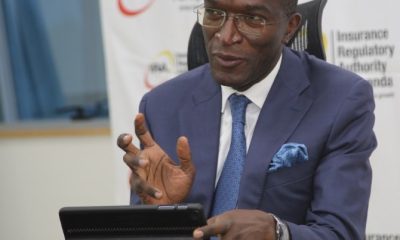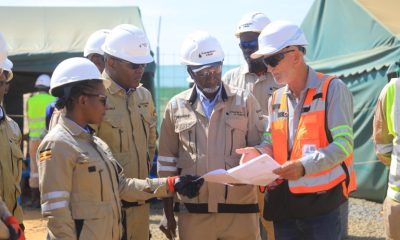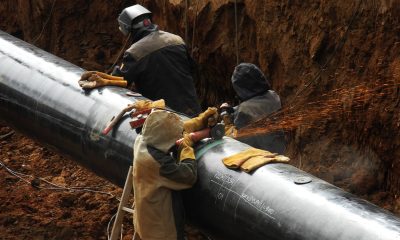Despite facing obstacles, Ugandan insurers are progressively establishing themselves in the oil and gas sector, marking a significant stride by the end of 2023. Operations were observed in major projects, including Tilenga, Kingfisher, and the East African Crude Oil Pipeline (EACOP). However, challenges persist in engaging larger foreign reinsurers to de-risk projects in the Albertine region.
The #StopEACOP global campaign, particularly targeting Munich Re, Hannover Re, and SCOR, has indirectly impacted the sector. Nevertheless, local insurers, such as the Insurance Consortium for Oil & Gas Uganda (ICOGU), have made notable progress.
Jonan Kisakye, CEO of ICOGU, acknowledged the initial small-scale retention of risk but emphasized the importance of starting small to foster growth. This sentiment was echoed by Maurice Amogola, CEO of Minet Insurance Broker, highlighting the necessity of spreading risk, with ICOGU addressing part of it while reinsuring the rest internationally.
Amogola expressed optimism that renowned reinsurers like Munich Re, Lloyd’s of London, SCOR, Swiss Re, AXA, and Zurich would eventually become involved, although this awaited realization by the end of the year.
Despite challenges, ICOGU has demonstrated success in de-risking the oil sector, with over $24 million in premiums written to date. The consortium, mirroring similar efforts in Senegal, consolidates local insurers’ underwriting capacity, enhancing their negotiation power with the international reinsurance market.
Kisakye emphasized ICOGU’s achievements in negotiating favorable terms with national oil companies, enabling local insurers to participate in the oil and gas industry’s risky endeavors with shared resources, pooled risk, and expanded capacity.
In terms of projects, ICOGU secured Contractor All-Risk (CAR) premiums of $9.4 million in the Tilenga project, $2 million for the EACOP project, and $3.2 million for the Kingfisher project. Additionally, ICOGU managed $2.3 million in premiums for Operators Extra Expenses in the Tilenga project.
While the exact figures for 2023 premiums remain undisclosed, it is anticipated that they will surpass 2022 figures due to ongoing developments, such as rig installations and drilling activities in Tilenga and Kingfisher.
Local insurers have also covered various risks associated with oil field operations, including workman’s compensation, Group Life Insurance, medical insurance, and cyber insurance.
Managing Director of Marsh Uganda, Alex Mukasa, emphasized the importance of insuring assets and liabilities in the oil and gas sector to mitigate risks. The sector’s development prompts investors to prioritize risk management, especially in the aftermath of historical incidents like the Piper Alpha oil rig disaster.
However, Ugandan insurers face challenges in negotiating favorable terms with international insurers, given the intricacies of insurance requirements and regulatory alignment. Uganda’s limited reinsurance options, with only two companies, Uganda Re-Insurance Company Limited and Kenya Reinsurance Corporation Uganda – SMC Limited, further complicate matters.
Some industry players advocate for the establishment of a reinsurance fund by the government to retain a greater portion of insurance premiums within the country.
As Ugandan insurers continue to navigate these challenges, their increasing presence in the oil and gas sector signals a positive trajectory, albeit with hurdles that necessitate strategic solutions and collaboration.




















